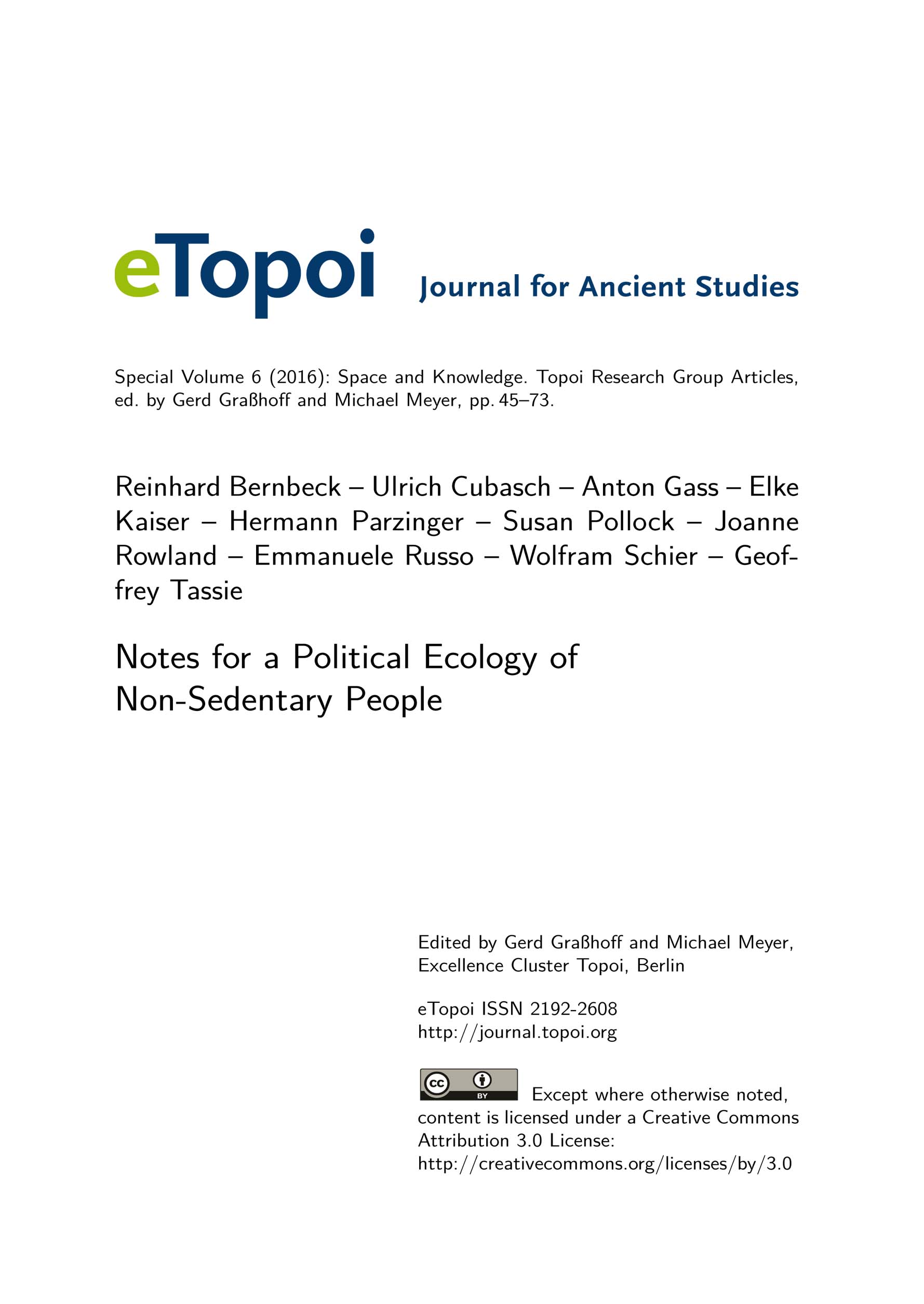Notes for a Political Ecology of Non-Sedentary People
The research group Political Ecology of Non-Sedentary Communities encompasses three research projects examining archaeological remains from various time periods in the Nile Delta, the foothills of the Kopet Dag and in the steppe region of western Eurasia; a fourth project in the group consists of climate and ecological modeling for Europe over the past 6000 years. The researchers in this group are investigating processes and dynamics which played out in different geographic spaces and different chronological periods between 9000 and 300 BCE. We propose a triad of three terms, Umgebung, Umwelt, and Mitwelt to serve as a conceptual basis for all of these projects, which vary greatly in terms of the chronological period, location and the way of life of the populations under study, as well as with respect to the archaeological database. The projects can be described on the basis of evidence of multifaceted practical actions. These actions on the part of the populations under study, revealed only fragmentarily in the archaeological record, are being investigated using the research strategies presented here. The strategies have been developed from the discussion on political ecology associated with discourses in the social sciences and humanities.
The research group Political Ecology of Non-Sedentary Communities encompasses three research projects examining archaeological remains from various time periods in the Nile Delta, the foothills of the Kopet Dag and in the steppe region of western Eurasia; a fourth project in the group consists of climate and ecological modeling for Europe over the past 6000 years. The researchers in this group are investigating processes and dynamics which played out in different geographic spaces and different chronological periods between 9000 and 300 BCE. We propose a triad of three terms, Umgebung, Umwelt, and Mitwelt to serve as a conceptual basis for all of these projects, which vary greatly in terms of the chronological period, location and the way of life of the populations under study, as well as with respect to the archaeological database. The projects can be described on the basis of evidence of multifaceted practical actions. These actions on the part of the populations under study, revealed only fragmentarily in the archaeological record, are being investigated using the research strategies presented here. The strategies have been developed from the discussion on political ecology associated with discourses in the social sciences and humanities.

